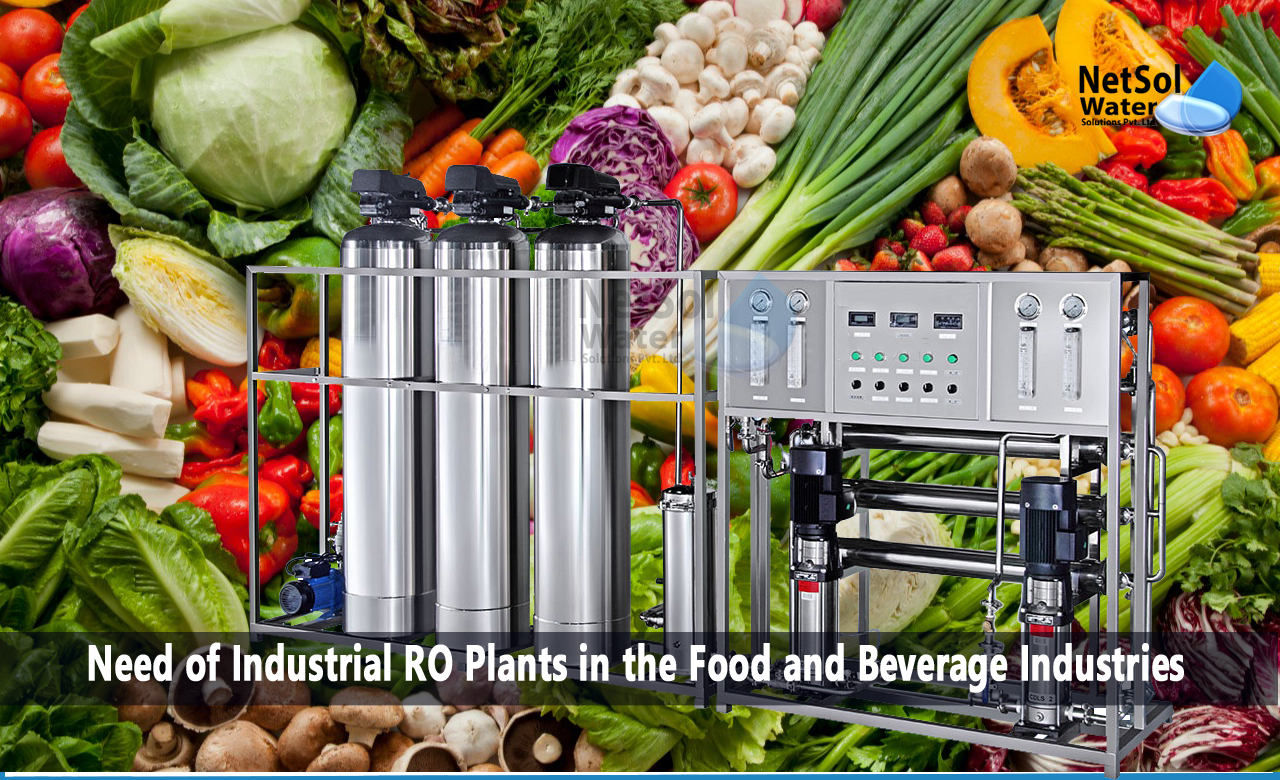The key ingredient in the food and beverage industries that needs to be free of unfavourable contaminants, such as unfavourable tastes, smells, and colours, is water.
In this blog, we will provide details on the need and the use of Industrial RO plants in the food and beverage industry.
Requirement and need of fresh water in food and beverage industries
Our planet's biodiversity and consequently, future generations are protected when clean water is returned to nature, or used for irrigation. For food production, food cleaning, and water recycling, the food processing industry uses RO-treated water. High quality water is necessary for the production of baby milk as well.
In addition to having stringent criteria for hygiene and food security, dairy and meat processing plants also need to regularly wipe down their equipment. Beer, wine, spirits, soft drinks, and juices are all produced using RO plants.
What is the importance of a water purification system in food and beverage industries?
Population growth is accompanied by an increase in water use and pollution. The water supply and water quality are on-going issues for the food and beverage industry.
Droughts, torrential rain, and severe flooding can all lead to problems with the overall quality of the water supply, and contamination of the aquifer during specific seasons, making the water supply unstable. Choosing the right water treatment system is one of the biggest obstacles to providing water, of the required quality for reuse.
Why are industrial RO plants needed in the food and beverage industry?
The food and beverage sectors nee?d industrial RO Plant for a number of reasons, some of which are listed below:
1. Clean foods and beverages
The industry should adhere to established criteria for water purity because water quality, directly affects the overall quality of the manufactured foods and beverages.
2. Cleaning and Sterilization of Equipment
While, washing the equipment, vehicles, and storage facilities, sterile water should be used.
3. Minimize Downtime
In order to maintain uninterrupted operations, recycled water must be properly treated and cleaned.
4. Fruit and vegetable juices, milk prior to concentration and de-alcoholised beverages, are all concentrated using RO.
5. Quality water is used by the beverage industries to spray-cool hot bottles.
Conclusion
Reverse osmosis is a useful technique that enables business owners to produce water that is extremely pure. It is anticipated that businesses would develop sizable potential for water-related investments in the food and beverage sector.
The market will continue to be very supportive of new products, technical advancements, sustainable practises, and water-saving techniques. All services relating to water conservation, water reuse and recycling technology, and producing renewable energy from wastewater, will be highly valued as the industry standard for the water footprint of food and beverage goods.
How can we assist?
Netsol Water offers a wide range of solutions for pretreatment and post-treatment, including media filtration, UV disinfection, and ultra-purification, to enhance these industrial RO systems and increase their efficiency. Moreover, we provide DM Water Plants, Sewage Treatment Plants, and Water Softeners as well.
You can count on us to make sure the installation goes off without a hitch. The first stage entails testing the TDS of the water to determine its quality. The RO membrane is then created in accordance with the report. We also offer prices that include all pertinent and important details, about wastewater treatment facilities. Our talented engineers install the treatment plants at the desired places, once the aforementioned procedures have been completed.
To guarantee you get the most out of your equipment, we also offer installation, training, commissioning, and support. For further information or to make a product purchase, contact us at +91-9650608473 or drop a mail at enquiry@netsolwater.com



